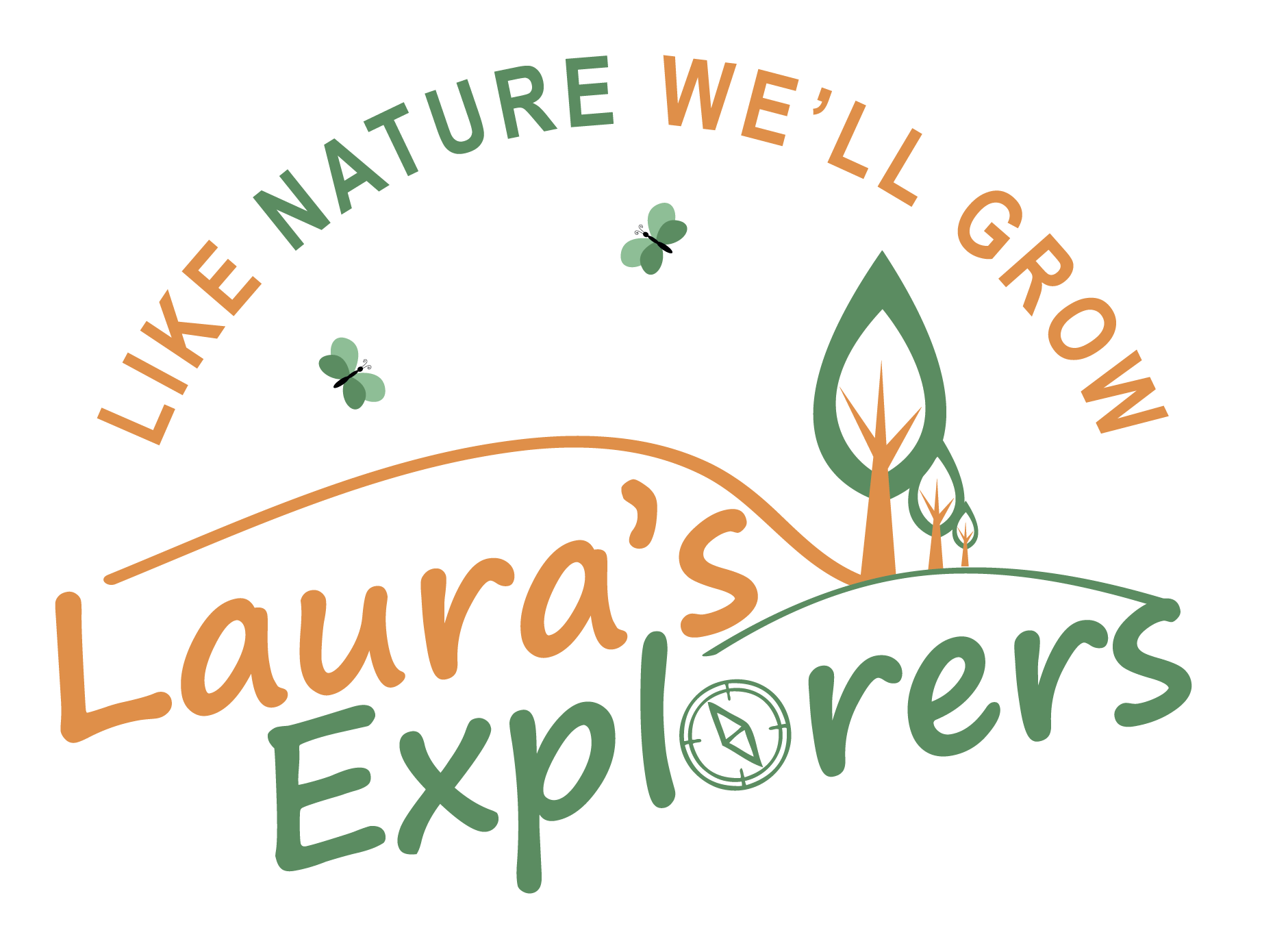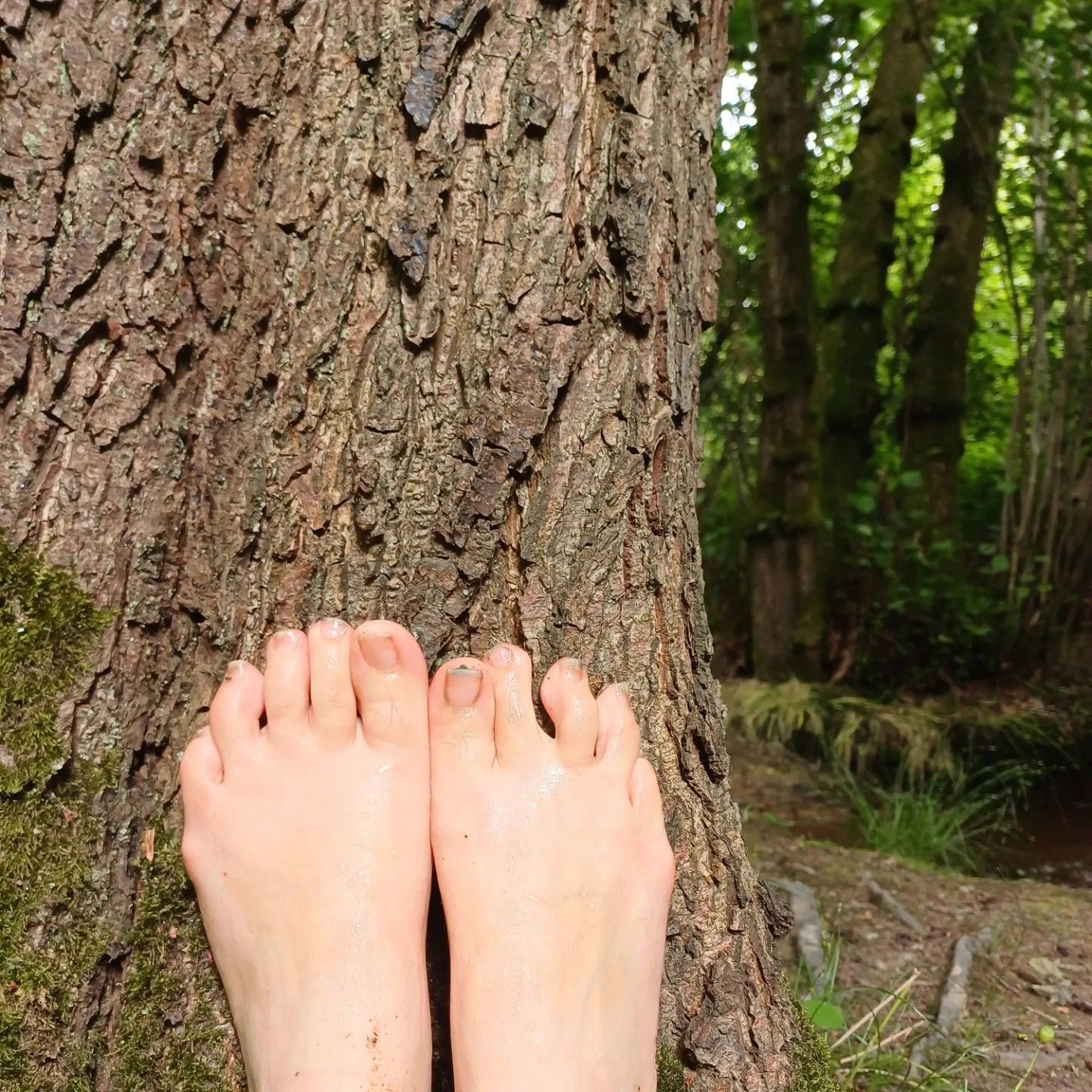Laura's Explorers Blog
There's a whole world of opportunity at our fingertips. We're here to guide you through some great places to explore, offer practical tips for a fulfilling an outdoor lifestyle, and spark your imagination with fun ideas. Join our vibrant community, follow us on social media, and embark on a journey where exploration meets celebration. Let's make every day an adventure and relish the countless opportunities our world has to offer.
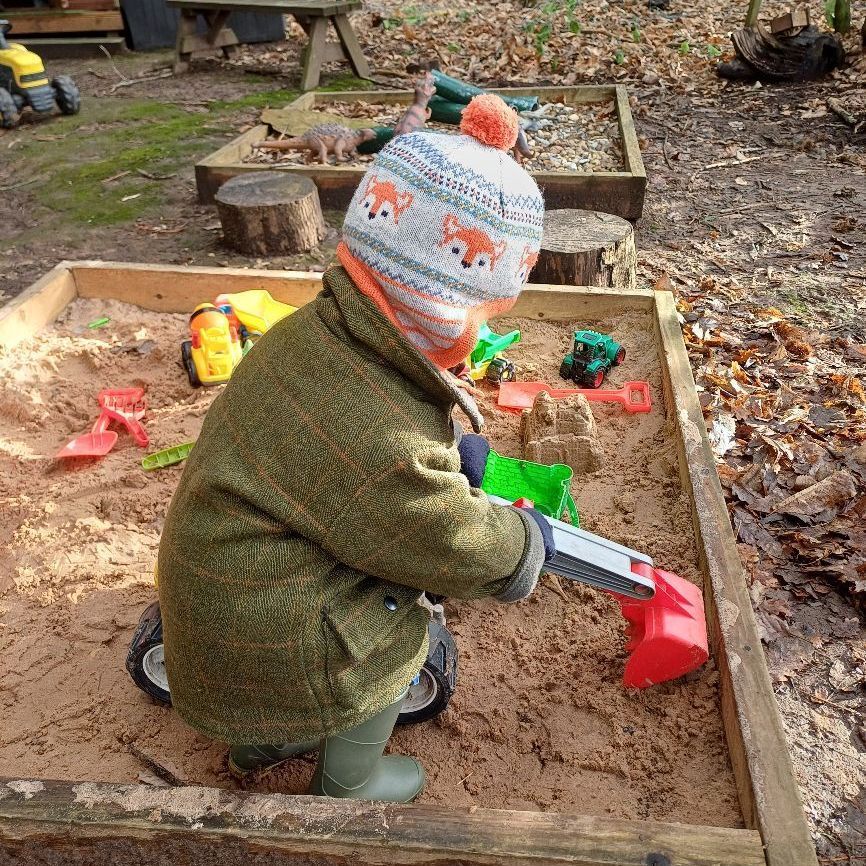
January can be a challenging month. After the festive buzz of Christmas, we often find ourselves feeling a little flat. The weather is unpredictable, the days are short, and it’s easy to fall into a post-holiday slump. But January doesn’t have to be gloomy. It’s also a time for fresh starts, new routines, and reconnecting with nature – and that’s where Laura’s Explorers comes in! If you’re looking for a way to shake off the winter blues, our woodland groups offer the perfect solution. Here’s why: A Weekly Escape to Nature Spending time outdoors is a proven way to boost your mood, and our woodland sessions provide just that. Whether you’re craving a change of scenery, want to meet like-minded parents, or simply need an excuse to leave the house for a couple of hours, Laura’s Explorers is here to help. Our groups meet every week in two stunning locations: Easebourne on Mondays Fernhurst on Fridays Each session is thoughtfully designed to make the most of the natural environment and create magical experiences for children and their families. Nature-Inspired Activities for Little Explorers At Laura’s Explorers, we go beyond just stepping outside. Each week, a carefully chosen nature-based theme inspires the crafts and activities available in the woods. From creating art with natural materials to imaginative role-play, children are free to explore and engage at their own pace. But it’s not just about structured activities. We understand the importance of free play, and our sessions are designed to give children the space and freedom to follow their curiosity and ignite their imagination. Campfire Comforts No winter woodland adventure would be complete without a warm campfire. Our campfire gatherings are a highlight of every session. Here, families can: Warm up after a chilly morning Enjoy a shared story Cook delicious treats together Sing a heartfelt farewell song There’s something special about gathering around the fire, and it’s the perfect way to bring everyone together before saying goodbye. A Community of Nature-Loving Families When you join Laura’s Explorers, you’re not just signing up for a weekly activity – you’re becoming part of a community. Our groups are a welcoming space for parents and children alike, offering opportunities to connect with others who share a love for the outdoors and a passion for nature-led play. Ready to Beat the January Blues? If you’re looking for a way to make the most of January, we’d love to welcome you to Laura’s Explorers. All you need to do is wrap up warm and join us in the woods. Let’s make this winter one to remember, filled with adventure, creativity, and connection. Visit our booking page to book your place today: www.bookwhen.com/laurasexplorers.co.uk Tags: #OutdoorPlay #ForestSchool #NaturePlay #ParentingSupport #WinterWellness #JanuaryJoy #NatureForWellbeing #WoodlandAdventures

No matter which path you take, a world of discovery awaits. Our weekly sessions draw inspiration from nature based themes offering optional woodland crafts and activities alongside free play allowing your child to lead the way. Joining our term time groups you’ll be welcomed into our community, meet like-minded families and break the groundhog day of parenting. Pictures can only give a glimpse into our world, making the decision of which path to take a difficult one. To ease your choice, we offer trial sessions allowing you to come and explore the sites before you block for the term. If you still cannot choose, subject to availability your ticket can be split between the two sites offering two unique experiences with just one ticket. I’m often asked which venue is my favourite but picking between Easebourne and Fernhurst is like picking a favourite child - impossible. Each venue has its own distinctive charm and both have stolen a piece of my heart. I love all the play areas at Easebourne, it’s views are amazing and it sets the perfect tone for the week. The wild wood of Fernhurst with its winding paths and playful stream offer a whole different kind of magic. Below is a quick overview of the two locations but I’ll go into each location in a little more depths at a later date. Easebourne Explorers Every Monday during term time our hidden play area welcomes children to a morning of adventure. In the woods you’ll discover tractors, a sandpit, a gravel pit, a den, playhouse, music area and more. Holiday groups will offer a welcome plan to your day. Fernhurst Explorers Every Friday during term time, we step off grid to embark on a wild adventure where children are free to explore the enchanting woodland. In the woods you’ll discover a mud kitchen, hidden paths, climbing opportunities, a swing, a shelter, a stream and, the most exciting discovery of all - yourself. Wild experiences also take place through the school holidays. Your path could be pre-chosen by the days we offer but, if you have the luxury of choice, reach out to discuss booking a trial ticket. Allow your child to experience both venues and pick the one which steals your heart. Whichever venue you choose, I can guarantee a world of woodland fun and a friendly community you’ll look forward to joining each week. I’m eager to welcome you to the woods. To see all upcoming dates please visit our booking page; www.bookwhen.com/laurasexplorers Laura the Explorer

The weather recently has given us a mixed bag, it’s hard to say what May half term will bring. Wet days don’t need to be a bore of watching the rain from inside, we can fully embrace those wet days and enjoy them as much as we do the long, lazy sunny days - but how? If you plan an adventure correctly, remembering your own wet day clothes too, we can all enjoy quality time outdoors whatever the weather! Your go-to Wet Day Play Guide We are bound to have a day when it rains, but don’t let this dishearten you. There’s still an adventure to be had. Rainy Day Adventures; Go out to rescue worms from puddles Jump in puddles Have a picnic in the car listening to the rain Enjoy a rainy day walk to discover water channels Take a tarp with you and build a shelter - there’s no better way to test it!! Rainy Day Trips: Visit Novium Museum or Haslemere Museum - these are both free Go Swimming Watch a film - did you know that Petworth have their very own cinema, adults pay the cost of a child’s ticket when watching a child’s film Sunny Adventures for Outdoor Exploration When the sun shines it’s time to start thinking of daily adventures to fuel your little explorers and fill the half term days. Pack a picnic and head to a local playpark; think Easebourne, Midhurst, Fittleworth, Milland, Rogate. Explore a country park; Hogmore Inclosure, Queen Elizbatheth Country Park, The Devils Punchbowl - these are all free to enter simply paying for the parking Embark on an adventure, it’s never a walk with children and I like to think of places that have a goal. We love Petersfield Lake, Petworth Park, Cowdray Polo Fields, Pulborough RSPB, walking to Buddingtons Farm to get milkshakes and walks along the downs. If there is an ancient building I’m there I love visiting the sinking house in Pulborough and Bedham Church, a stroll from Duncton to Burton is perfect for bikes with a perfect little church to visit onroute. The list is endless! And not to forget your wonderful woodland play, our groups will run on Tuesday 28th May at Easebourne and Saturday 1st June at Fernhurst offering you the perfect playdate for your half term fun. To join us, book your tickets online: www.bookwhen.com/laurasexplorers I wish you all a wonderful May Half Term, full of fun, adventure and quality time together. Take this time to slow down and grab the time to make everlasting memories which will be cherished for a lifetime. Laura the Explorer
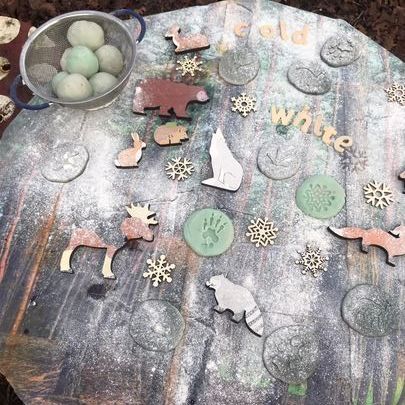
At the heart of my vision lies a theme, carefully chosen to ignite the spark of curiosity and excitement in young minds. Drawing inspiration from the concept of Hygge in the Early Years, I infuse the themes with a unique charm, tailoring crafts and activities to captivate the imaginations of our eager participants. But the magic doesn't stop there. Behind every enchanting experience lies countless hours of preparation and organization. Armed with my trusty planning bible, I meticulously outline every detail, constantly evaluating and refining the ideas to ensure a seamless experience for all involved. Prepare & Pack… As the day of exploration draws near, I spring into action, transforming my visions from paper into reality. A visit to the shed is just the beginning as I gather an array of supplies, meticulously laying them out at home to ensure nothing is overlooked. Kit is assembled, each item thoughtfully chosen to guide participants on their journey of discovery. Into the woods… But the chaos doesn't end there. With a plethora of supplies in tow, I venture into the woods, navigating the rugged terrain with determination and grace. Setting up each station with precision, I transform the tranquil surroundings into a playground of adventure, ready to be explored by eager hands. Your arrival… And yet, amidst the chaos, there is a sense of calm that washes over me as participants begin to arrive. With a cup of tea in hand, I watch with pride as my hard work comes to fruition, knowing that I’ve played a part in creating memories that will last a lifetime. So the next time you find yourself wandering through the woods of Laura's Explorers, take a moment to appreciate the magic that lies behind the scenes. For amidst the chaos and creativity, there is a passionate soul, I pour my heart and soul into bringing joy and wonder to all who dare to explore. Join us in the woods to admire all the hard work and start your own adventure exploring all the woods and these magical groups have to offer, book your adventure today; www.bookwhen.com/laurasexplorers Your explorer to guide you, Laura the Explorer

Nature is a healer, it can add calm and improve feelings, here are a few examples; If you’re stressed, heading outside can calm you If you’ve had broken sleep, time outside can refresh you If you’re feeling poorly, fresh air can make you better If the children are arguing, taking them out will reset them Today's Barriers We know there are benefits of being outdoors yet the study still showed the scarey result so what is stopping our children from enjoying a nature led childhood just like adults did twenty years ago? If we are faced with barriers, how can we overcome these to ensure we give children and ourselves more time outdoors? Children do not want to go out Encouraging outdoor play can sometimes be a challenge when children are absorbed in the present. To motivate them, try talking about the fun you’ll share outdoors, offering incentives like snacks, or using creative methods like sand timer countdowns. Despite the occasional struggle, fostering a positive attitude towards outdoor activities is important for children's well-being. Going out is hard work Getting outside can be a challenge at times, but the benefits outweigh the obstacles. Whether it's applying sunscreen or bundling up in layers, preparing for outdoor activities requires effort. However, by consistently engaging in outdoor time and discussing plans with children, it becomes more routine and enjoyable. It may affect nap time Outdoor activities might disrupt nap schedules, but with careful planning, you can schedule outdoor time before or after naptime. Alternatively, allowing children to nap outside, as is common in Scandinavia, can be beneficial, as they are soothed by the ambient natural white noise and fresh air. Toilets and changing away from home Nappy changing and using toilets outdoors might seem daunting, but exposing children to various toileting options from a young age is beneficial. It helps them adapt to different situations and reduces the fear of using public facilities in the future. We lack natural spaces Even in urban areas where natural spaces may be limited, nature surrounds us if we seek it out. In places like West Sussex, with its proximity to national parks, beaches, and playgrounds, there are ample opportunities to connect with nature. However, even simple activities like gardening or planting flowers in your own backyard can provide relaxation and connection to the natural world. We’re too busy In our busy lives, finding time for outdoor activities can be challenging. However, it's increasingly recognized that spending time in nature is essential for mental well-being. As adults, we need to prioritize outdoor time for ourselves and for the younger generation. Making small changes like walking instead of driving, visiting local parks, or participating in outdoor challenges like "1000 Hours Outdoors" can make a significant difference in our connection to nature. We don’t have the right clothes Clothing barriers shouldn't deter outdoor adventures. You don't need expensive gear; children remember the experiences, not the outfits. Get creative with what you have—like using bin bags for broken wellies. Second-hand options are abundant and many supermarkets offer seasonal gear. Buy larger sizes for longevity and embrace recycling for both memories and the environment. Freeplay outside We may have lost the art of free play or become too busy, but by prioritizing screen time over unstructured play, we're speeding up childhood and depriving children of valuable experiences. Childhood is fleeting, and we shouldn't squander it by rushing them through it. Let's give children the time and space they need to explore, create, and simply be kids. Children prefer screens While children may prefer screen time over outdoor activities, it's important not to replace natural experiences with screens. Setting screen time limits, especially after outdoor time, helps maintain balance. While screens are part of our world, we must teach children the value of slowing down and connecting with nature. Children do not like playing outside Some children may initially resist playing outside, but with consistent exposure, we can cultivate their love for nature. For children accustomed to indoor activities, transitioning to outdoor play may take time. By integrating outdoor time into daily routines, we nurture their curiosity and appreciation for the natural world. Start small with simple outdoor activities, gradually expanding their experiences. With patience and encouragement, children can develop a deep connection to nature, fostering wonder and curiosity. Children do not like dirt For some children, getting dirty outdoors can be a challenge, especially if they have sensory issues. However, exposure to nature can help overcome these barriers. It's never too late to start. Bring a mat or find benches for comfort, and encourage sensory exploration like touching tree bark. By showing children that dirt is manageable and washes off easily, we can help them embrace outdoor play with confidence. As adults, we set an example for our children. The more we spend time outdoors with them, the more likely they are to embrace it. Even if a child has spent a lot of time indoors, it's never too late to start fostering a love for nature. Through small changes and finding time, we can raise a generation that values and protects the natural world for future generations. “Unlike television nature doesn’t steal time it amplifies it” Richard Louv Join us in raising a wild generation instead of another indoor one! If you're feeling isolated or unsure where to begin, join our unstructured nature play sessions in the woods with amazing families. Book your tickets to escape the indoor life at www.bookwhen.com/laurasexplorers Stay wild, don't be tamed! Laura the Explorer
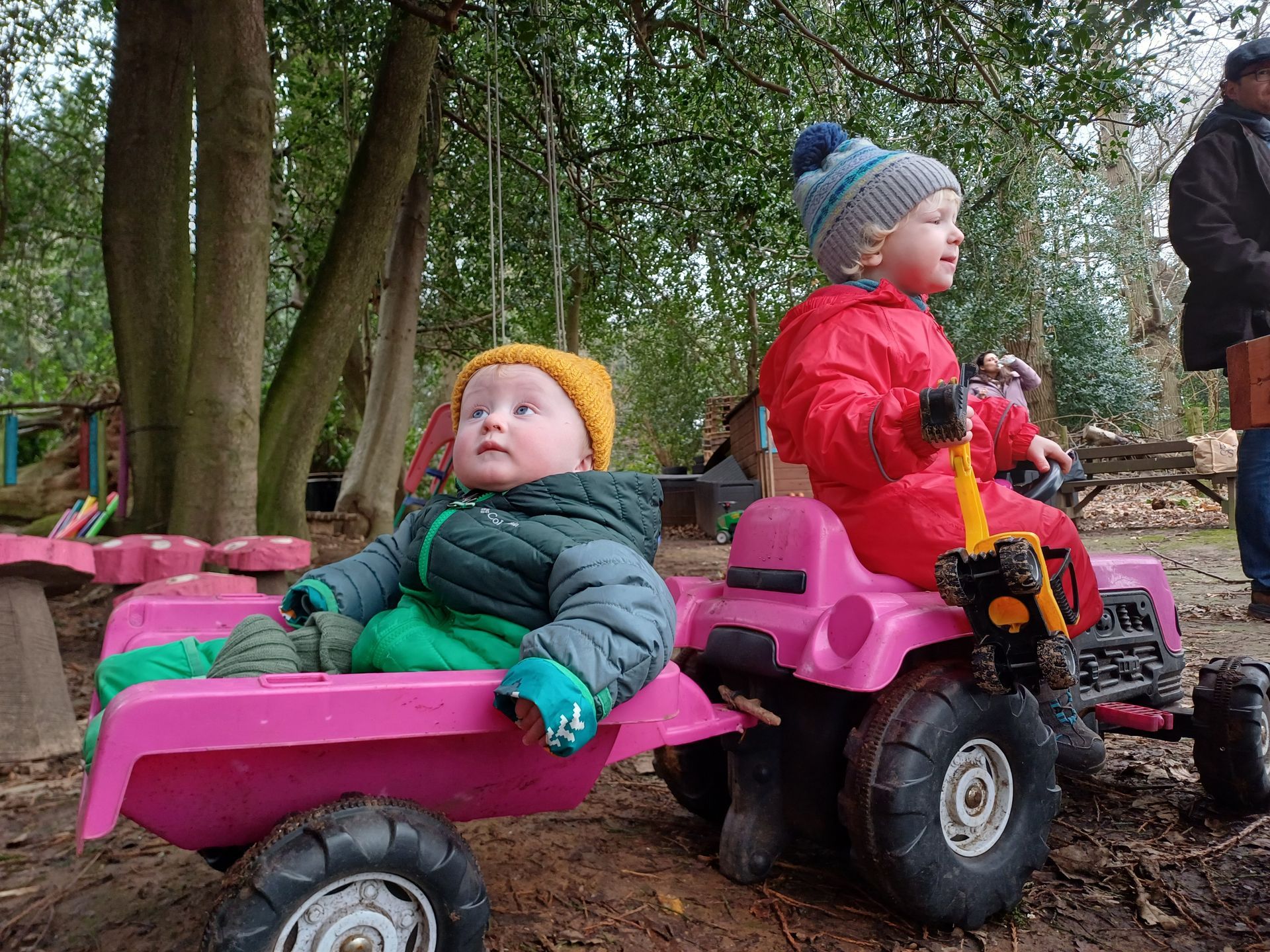
Benefits of Woodland Play for Toddlers Woodland play for toddlers offers a unique and enriching experience that transcends typical playground setting. Here are several key benefits: Nature calms and soothes: Nature has an amazing ability to calm children. From teething babies to unruly toddlers simply stepping outside into nature awakens their senses and distracts them. Connection with Nature: Foster a deep appreciation and understanding of the wonderful world we live in. By taking young children outdoors and offering them an opportunity to explore each season, not only are we building resilience but we are embedding a love for nature into them, giving them treasured memories which will shape how they see the world as they grow. Physical Development: E nhanced through movement, coordination and overall physical well-being. Those first steps in the woods can be challenging; managing that ever changing terrain, the loose parts on the floor, the branches blocking the path meaning children have to problem solve ‘how will they get past it?” while also making them move in different ways. Imagination and Creativity: The natural environment stimulates imagination and creativity. Plastic toys can only be what they have been made to be whereas a pinecone has endless play opportunities outside, it could be a ball to roll or an ingredient for the mud kitchen. Not only that, this simple loose part offers texture for tiny fingers to explore and a child may take it round the woods to play with in different ways. Risk-taking and Confidence Building: Provides an opportunity for safe risk-taking and fostering confidence. Simply stepping into nature is a risk, the poisonous plants, the loose parts, the dirt, but if we do not expose young children to the risks and given them the opportunity to make mistakes they may loose the ability to manage risks which could could big problems when they are older. Cognitive Development: Enhances cognitive skills through exploration and problem-solving. Emotional Wellbeing: Nature offers an emotional balance and an opportunity to escape the confined feelings of being indoors. Nature has the power to ground children in an environment which heals and soothes. Outside the pressures of everyday life are removed, it offers an environment where adults and children can enjoy quality one to one time together, not only does it heal us individually it connects us with the people we share it with. Social Interaction: Facilitates social skills through group activities. Environmental Awareness: Cultivates a sense of responsibility and awareness of the environment. Seasonal Learning: Appreciating the wonders that each season has to offer. Sensory Engagement: Ignites a whole new experience for the senses, promoting sensory development. From listening to the pitter patter of the rain, feeling the wind, watching a storm, tasting the snow (not the yellow spots) and smelling freshly cut grass all our senses are awoken when we step outside. But the best things of all is no two experiences will ever be the same, a different sense may pick up something new each time. “Play is our brains favourite way of learning” - Diane Ackerman Outside, In summary, taking your children to play in the woods offers numerous benefits. Beyond the physical, cognitive, and emotional advantages, participating in our woodland play means joining a wonderful and supportive community of like-minded families. It's an opportunity to interact with others, share experiences over a cuppa, and form new friendships under the trees. If you're curious about the wonders of woodland play, the best way to explore is to jump right in! Join us in the woods and discover how a morning of play can leave you feeling relaxed, refreshed, and happy. Book your tickets here to escape the everyday; www.bookwhen.com/laurasexplorers ”If children grow up not knowing about nature and appreciating it, they will not understand it, and if they don’t understand it, they won’t protect it, and if they don’t protect it, who will?” - Sir David Attenborough Laura the Explorer

Connecting with Nature When we take the time to step outside without a plan, we can truly connect with nature. We slow down and appreciate the smaller things around us. Maybe we blow that dandelion wish or push sticks into mud. We may walk through a puddle or watch the clouds. Nature play is all about connecting us with the world around it. It's not an Instagram-ready set up; it’s not perfect, it’s not made, it’s real, it’s messy, but it’s so much fun. We don’t have to go far to see it or experience it; it’s not a one-off day trip; it's all around us. “When I’m outside I learn about nature. Nature is what we’re in now. The trees are nature. The sky is nature. The creek is nature. The ants are nature. We are nature too, because we look after nature - and not break it.” Quote from a 4-year-old from Research Handbook of Childhoodnature Us adults sometimes lose the sense of what nature is - by giving our children time outside we are also re-wilding ourselves. Nature play is a daily connection with nature, muddy fingers, first-hand experiences; it’s an invitation to play which is not an Instagram-ready set up; it is real - let’s give them the real, not the made-up! Nature Play opens questions and inquisitively; it’s learning without walls, without structure. Inspired by Hygge in the Early Years Inspired by Hygge in the Early Years, our woodland groups take inspiration from the Scandinavian way of living. It’s where Forest School was born well before it became a worldwide phenomenon hitting the UK in 1993. Our sessions offer a real ‘laid back’ feel in a private woodland for you to wander through, explore and enjoy. Experience Nature Play Fancy experiencing nature play? You could step outside your door, let the world guide you but, if you’re still a little lost, join us in the woods. By joining Laura’s Explorers, you will be stepping into nature play. It’s a place where your child can guide the way; you can enjoy a hot drink and biscuit in the woods surrounded by like-minded families. It’s a place where the world slows down and everything is done for you; you do not need a plan to come here; we do everything to help you and your child re-wild yourselves in our beautiful settings. If you fancy re-wilding yourself each week and building resilience with unstructured play, book your tickets to join the adventure: www.bookwhen.com/laurasexplorers Let’s see where the adventure will take us Laura the Explorer

February half term often throws a mixed bag at us, from crisp sunny days that feel almost spring like to those icy mornings (maybe even snow) when we need those cozy indoor retreats to break the days. This year I invite you to elevate your half term with my go to list of 25 things to do with a blend of indoor and outdoor experiences. From free places to visit, play parks to explore, wildlife to spot and nature awakening from it’s long winters sleep, We’ve got your week covered! Previous half terms, I've either overpacked the days or left them empty but, this is the children break from the everyday, their time to switch off and enjoy things. I find having a ‘go to list’ is a fab idea for filling those unplanned days with fun. It also removes the pressure of trying to think on your feet. Free Places Here is a list of five free places which you could visit during half term. This list offers a variety of indoor/ outdoor events, some offer places to walk, parks, cafes and others are more to pop in for an hour; Novium Museum in Chichester Haslemere Museum Hogmore Inclosure Dinosaur Park Frensham Ponds Play Parks We visit a lot of playparks but here are our go to five parks; Easebourne Petersfield Chichester Horsham Fittleworth Wildlife to Spot Although some of our animals are still deep in hibernation there are still plenty of discoveries to be found outside this time of the year; Deer Robin Squirrel Bugs Barn Owl Nature to Spot As nature starts waking up from it’s long winters sleep there are signs that spring is just around the corner. Sometimes, in the sun it can feel almost spring like so grab these sunny days and head out to explore signs of spring; Snowdrops Tree buds Daffodils Crocuses Lords & Ladies Things to do Sometimes you maybe at home just wanting something fun to do on your walk, park visit or to break your day up. Here are my top five go to things to do this time of the year; Enjoy a picnic Go for a walk Build a den Feed the ducks Visit a farm to buy milk If you do try any of the ideas above, don’t forget to share you adventure on social media and tag us in. We’d love to hear about your experiences. If you’re looking for more excitement, maybe a place to organise a play date or simply share time with other families, join us in the woods over half term for some fantastic woodland play. We’ll be making nature hearts, gathering round the fire for tasty snacks but best of all, it’s a fun packed morning all planned for you and your child, you can simply turn up, play, create and explore. Half term sessions are running at Fernhurst 10-11:30 on Sunday 10th February and Friday 16th February. Click here to explore our playdates in the woods. Wishing you and your families a magical half term, may it be filled with adventure, fun and nature. Laura the Explorer

Early Years: Seeking Socialization In those early years, I immersed myself in various parent-child groups. It was a chance not only to socialize but also to provide my children with opportunities to play and interact with other children. Meeting other families, enjoying a chat and a cuppa made an escape from home, an opportunity to switch off from the big to do list and a chance to spend quality one to one time with my son. Growing Pains: The Limitations of Indoor Play As my boys grew, I realized that the plastic toys and indoor environments of traditional playgroups were no longer stimulating for their boundless energy. Challenges escalated, leading to frustration and unhappy children, not to mention the frequent illnesses. Loneliness and Dilemma: Missing Adult Interaction When my son lost interest in playgroups, the isolation from other adults became apparent. Balancing the joy of one-on-one time with the monotony of everyday routines became a dilemma. The Seed of an Idea: Vision for Outdoor Families The idea of creating a space for outdoor families started forming when my first son was young. However, life's demands often pushed it to the back burner. The vision was there, but the timing wasn't right. Turning Ideas into Reality: Redundancy as a Catalyst In a twist of fate, a job loss with a redundancy payout provided the means to turn the long-standing idea into a business venture. Birth of Easebourne Explorers: May 2019 After overcoming obstacles and red tape, Easebourne Explorers was founded in May 2019. The initial journey was challenging, trying to stand out in a world saturated with groups for young children. Setbacks: A Relentless Winter and Lockdown Our progress faced setbacks with a relentless wet winter of 2019 and the sudden onset of lockdown in spring 2020. Adapting to the "new normal," we discovered the wood at Night Pastures. Fernhurst Explorers: A New Beginning in April 2020 In April 2020, Fernhurst Explorers was born, offering a fresh start and a new venue. This expansion marked the beginning of offering families two amazing outdoor venues to choose from. 2021: Expanding Horizons In 2021, we were fortunate to embark on new adventures, offering birthday parties at Fernhurst and taking our woodland workshops into nursery settings. Our love for nature now reaches a new generation. Conclusion: The Journey Continues Today, we proudly offer families two unique outdoor venues, Easebourne and Fernhurst, providing a distinctive outdoor experience. Our journey continues, and we look forward to many making many more adventures with the explorers and their families. Thank you for being part of our story. Warm regards, Laura Founder, Easebourne Explorers & Fernhurst Explorers
Join our mailing list and follow us on Facebook & Instagram
